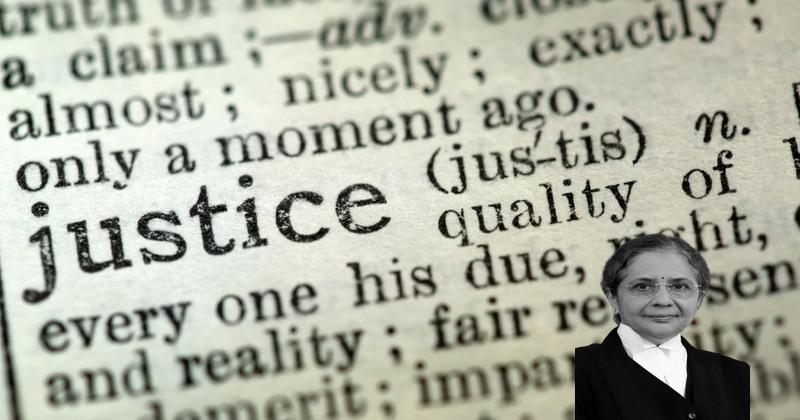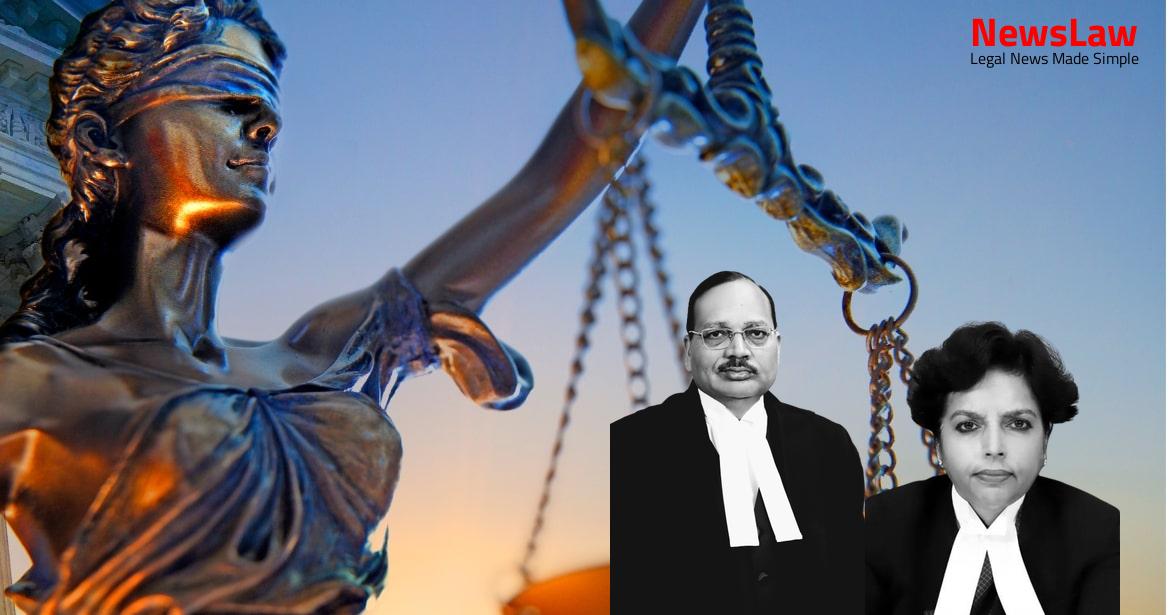Explore the in-depth legal analysis regarding the offense of abetment of suicide and the exercise of judicial prerogatives in a recent case. The focus is on the court’s evaluation of the case, highlighting key aspects such as bail applications, quashing of FIRs, and the protection of personal liberty. Stay tuned to unravel the complexities of criminal law and judicial decision-making.
Facts
- On 26 May 2020, the Home Department of the State of Maharashtra transferred the FIR registered at Alibaug Police Station under Sections 306/34 of the IPC to the crime investigation department for reinvestigation.
- The State challenged the CJM’s decision declining police custody in a revision before the Additional Sessions Judge, Raigad.
- The appellant’s spouse had committed suicide by hanging, as discovered by the informant upon reaching their house in Alibaug.
- The SHO at Alibaug Police Station filed a report for an ‘A’ summary on 16 April 2019.
- ARG mentioned in a letter that they would transfer Rs. 39.01 lacs into CDPL’s bank account against an indemnity for future claims.
- Representatives of ARG visited Alibaug Police Station on 7 and 8 May 2018 to provide information requested in notices under Section 91.
- A broadcast on Republic TV and Republic Bharat regarding an incident in Gadchinchle village in Maharashtra led to multiple FIRs and complaints against the appellant in various states.
- The CJM accepted the report and granted an ‘A’ summary regarding the incident mentioned above.
- The appellant filed a Writ Petition before the Bombay High Court invoking Articles 226/227 of the Constitution and Section 482 of the CrPC at 2:37 pm.
- The FIR stemmed from a contract between ARG and CDPL in December 2016, resulting in the suicide of Anvay Naik, the deceased owner of CDPL.
- The appellant, Editor-in-Chief of Republic TV, sought release from custody and stay of proceedings through an interim application.
- The High Court declined the writ of habeas corpus, but granted liberty to file a bail application under Section 439 of the CrPC.
- The High Court reserved judgment on the petition to quash the FIR and granted liberty to pursue remedies before competent forums.
- The appellant had not been arrayed as an accused in the FIR, and the CJM remanded him to judicial custody till a specified date.
- A Division Bench of the Bombay High Court suspended proceedings in two FIRs against the appellant and denied bail, citing alternate remedies under Section 439 of the CrPC.
Also Read: Electoral Malpractices in Mayor Election
Issue
- The High Court will consider the issue of whether the appellant has made out a case for quashing the FIR
- The High Court will also consider the possibility of a reinvestigation ordered at the Home Department of the State
- The balance between the rights of the accused and the family of the deceased victim has been taken into account by the High Court
- This issue will be discussed further during the court proceedings on 10 December 2020
Also Read: Balancing Power and Transparency: Electoral Bonds Struck Down, Disclosure Mandated
Arguments
- The petitioner, ARG, hired iCastX Technologies for construction work.
- No reference to the petitioner in the FIR filed in May 2018.
- Petitioner’s order of arrest deemed illegal, seeking relief under Article 226 of the Constitution and Section 482 of the CrPC.
- Misinterpretation of judgment in Habib Jeelani case by the High Court.
- High Court justified in not interfering with the investigation.
- No allegations of instigation by the petitioner in the FIR.
- Privity of relationship between iCastX Technologies and CDPL.
- Application for bail filed in compliance with High Court’s liberty grant.
- Preservation of procedural hierarchy of courts balanced against personal liberty of the appellant.
- Focus on procedural hierarchy for bail application under Section 439 of the CrPC.
- The arrest seen as rooted in targetting the petitioner for news broadcasts critical of the Maharashtra government and police.
- Application for bail being seen as already available under Section 439 of the CrPC; extending jurisdiction under Article 226 not necessary.
- Sister of accused filing the appeal; accused being a Director in iCastX Technologies Private Limited.
- Commercial dispute and pending payment issues between companies mentioned.
- Petitioner portrayed as a target of State government’s vendetta.
- Urgency in granting bail due to lack of reasonable grounds for continued arrest.
- High Court’s decision to not shock the conscience by releasing the appellant on interim bail upheld.
- Court emphasizes pursuit of legal remedy under Section 439 of the CrPC.
- Investigation not concluded according to an ‘A’ summary.
- Importance of personal liberty balanced against non-interference in similar cases by the Court.
- Admittedly, all three accused named in the FIR are unconnected
- There were delays and discrepancies in the work by CDPL which led to email exchanges
- There is a civil suit regarding the disputed debt between the companies pending
- A payment of Rs 4.40 crores was made but a genuine commercial dispute remains
- No indication of a personal interaction/connection between the appellant and the deceased
- The appellant is a Director in a private limited company with minimal shareholding
- The company had engaged the services of various vendors, including CDPL
- No basis in the FIR to implicate the appellant in the alleged offences
- Invoice raised was over Rs 5 crores, including GST amount
Also Read: Recall of Resolution Plan Approval: Legal Analysis
Analysis
- Abetment of suicide is punishable with imprisonment up to 10 years
- For abetment to be proven, there must be direct or indirect incitement to commit the crime
- The accused must have an active role in instigating or facilitating the crime
- There should be a proximate relationship in time between the abetment and the crime
- Abetment is defined as the instigation of a person to do a particular thing
- The High Court failed to discharge its adjudicatory function by declining to evaluate prima facie at the interim stage in a petition for quashing the FIR and in declining interim bail.
- The power of the High Court to protect the citizen by an interim order in a petition invoking Article 226 was not exercised effectively.
- The failure of the High Court to render a prima facie opinion on the FIR led to a denial of interim bail, neglecting the need for prompt disposal of bail applications.
- The High Court’s misdirection in declining to evaluate prima facie on a petition for quashing the FIR resulted in an abdication of its constitutional duty as a protector of liberty.
- The High Court failed to notice the disconnect between the allegations in the FIR and the offense of abetment of suicide under Section 306 of the IPC.
- Emphasis was placed on the importance of proper evaluation of bail applications, the abuse of process, and preventive measures to secure liberty.
- The power of further investigation under Section 173(8) of the CrPC does not require judicial sanction, highlighting the need for cautious exercise of judicial power.
- The High Court’s failure to make a prima facie evaluation impacted the appellant’s liberty, indicating a systemic issue in the criminal justice system.
- The significance of habeas corpus, fair investigation, protection against misuse of criminal law, and the promotion of liberty were underscored in the analysis.
- The High Court’s role, jurisdiction, and duty in protecting citizen’s rights, preventing abuse of process, and ensuring fair evaluation of cases were emphasized.
- The leading majority judgment is the view of the court which binds all.
- In recent cases, essential ingredients of the offence under Section 306 of the IPC have been elucidated.
- Courts often face burden when lower courts decline bail in deserving cases.
- The role of High Courts in quashing FIRs and criminal proceedings has been highlighted.
- The meaning of abetment in Section 306 of the IPC has been discussed in various judgments.
- Human liberty and the role of Courts in securing it have been emphasized.
- The importance of bail as a safeguard of the presumption of innocence in the criminal justice system has been stressed.
- The responsibility of the district judiciary as the first interface to citizens in delivering justice has been underscored.
- Judicial discretion in quashing FIRs and the role of High Courts and lower judiciary have been discussed.
- The significance of evaluating FIRs before taking legal actions has been pointed out.
- A focus on citizen’s accountability under criminal law has been reiterated.
- The evolving principles in criminal law and procedures have been mentioned to emphasize justice delivery to citizens.
- Observations in the present judgement are limited to determining if a case for interim protection was established.
- Observations in the impugned order of the High Court were also made at the interim stage.
- The observations made at the interim stage will not impact the final resolution of the issues before the High Court.
Decision
- Reserving judgment at the conclusion of arguments, the Court directed the release of all three appellants on bail pending disposal of proceedings before the High Court.
- Operative directions issued on 11 November 2020 stated that interim protection for the accused would remain in effect until the High Court proceedings are disposed of and for an additional four weeks post the High Court judgment, if further legal action is needed.
Case Title: ARNAB MANORANJAN GOSWAMI Vs. THE STATE OF MAHARASHTRA (2020 INSC 665)
Case Number: Crl.A. No.-000742-000742 / 2020



